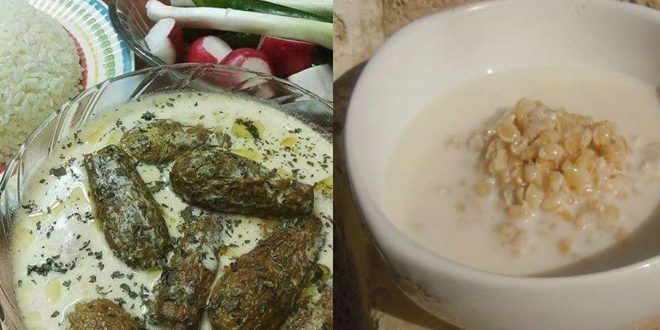With a piece of dates, a glass of water and a prayer, the Syrians open their Ramadan table, and then the housewife makes sure, especially on the first day of fasting, to decorate the table with the main dish that is usually white in color and that all members of the family love.
Welcoming the month of fasting in all religions in Syria with white is a socialist heritage that has been passed down over hundreds of years, which symbolizes optimism and good news, as milk and yoghurt are its main ingredients.
Among the traditional dishes that include dairy products like milk or yogurt in their basic composition are Shakria, Kibbeh Labanieh, Malihi, Arab Mansaf, Shish Barak, Kashk, Fattah, and others.
The dairy products and Cheese manufacturing are a type of Syrian traditional industry that has been classified as an intangible cultural element, according to the National List of Elements of the Syrian Intangible Cultural Heritage.
Another ritual that the Syrians adopt during Ramadan despite the difficult living conditions as a result of the war and blockade, is the tradition of neighbors exchanging meals (Sikbeh) just before iftar in Ramadan. It is one that strengthens social bonds and warm brotherly feelings that can last throughout years to come.
The Sikbeh has been passed down the generations and families are committed to abide by it with the Prophet’s saying: “Those who offer iftar to a fasting person get the same reward.”
This tradition does not only sustain brotherliness and good neighborly relations but also teaches children the spirit of generosity and charity.
Najla Khoury

